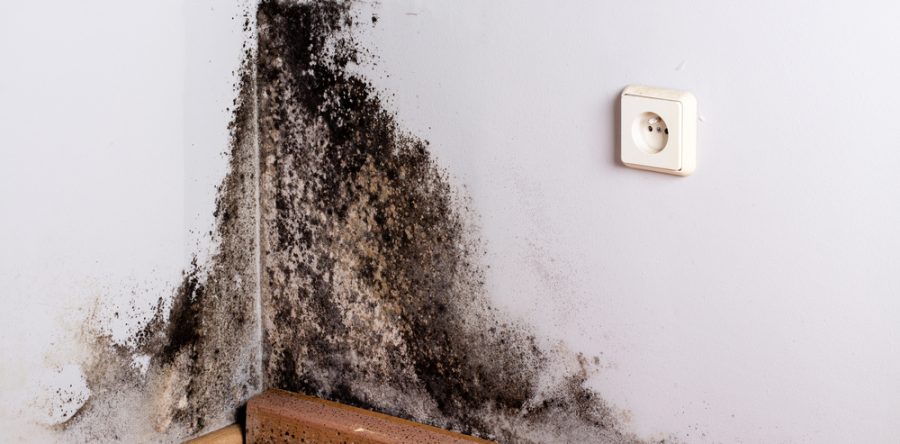What is it?
Black mold, also known as stachybotrys chartarum, is a dark greenish-black color that may have a bumpy texture. It is usually found where there has been water damage, leaving it with a slimy top layer. While not all types of mold are harmful, black mold can be extremely toxic to humans. Coming in contact with black mold in your home often raises concern, and for good reason. If you think your home has been infested with black mold, we’ve laid out a few things you should know. Keep reading to find out what causes it, what symptoms to look out for, and the potential health effects it can cause.
What causes it?
Black molds thrive in warm, dark, moist environments. The most popular place it’ll live is in your baths, showers, toilets, kitchens and basements. Because it favors cellulose materials, you may even find in growing on cardboard, wallpaper, or wood, such as your cabinets or flooring. When mold is provided with these favorable conditions, they will root and quickly reproduce a whole colony. Once mold is produced, it reaches a level of maturity capable of releasing mycotoxins, such as the deadly trichothecene. It’s rapid growth and capacity is what makes this type of mold that much more intimidating than the rest.
What are the symptoms?
If you’ve been exposed to black mold, there’s a variety of symptoms you may experience.
- Breathing problems
- Fatigue, headaches, tiredness
- Nausea
- Confusion/brain fog
- Anxiety
- Difficulty concentrating or paying attention
- Asthma attacks
- Coughing or sneezing excessively
- Skin inflammation (red itchy eyes, mouth or nose)
Potential Health effects:
Long-term exposure to high concentrations of black mold can lead to serious health effects in the future. Your body can become susceptible to a variety of serious diseases:
- Balkan nephropathy (disorder of the kidney)
- Bronchitis (lung infection)
- Hepatocellular carcinoma (cancer in the cells of the liver)
- Kashin-Beck disease (disease of the joints and bones)
- Respiratory infections
- Reye’s syndrome (results in brain and liver swelling)
Contact DCM Environmental Testing
Toxic black mold is even more common to find in your household than you may think. It is not just an eyesore, but may also be causing you and your family serious health risks. If you think your home may be infected with toxic black mold, contact us today for a mold inspection. Fill out our contact form or call us directly at 617-481-5782!



